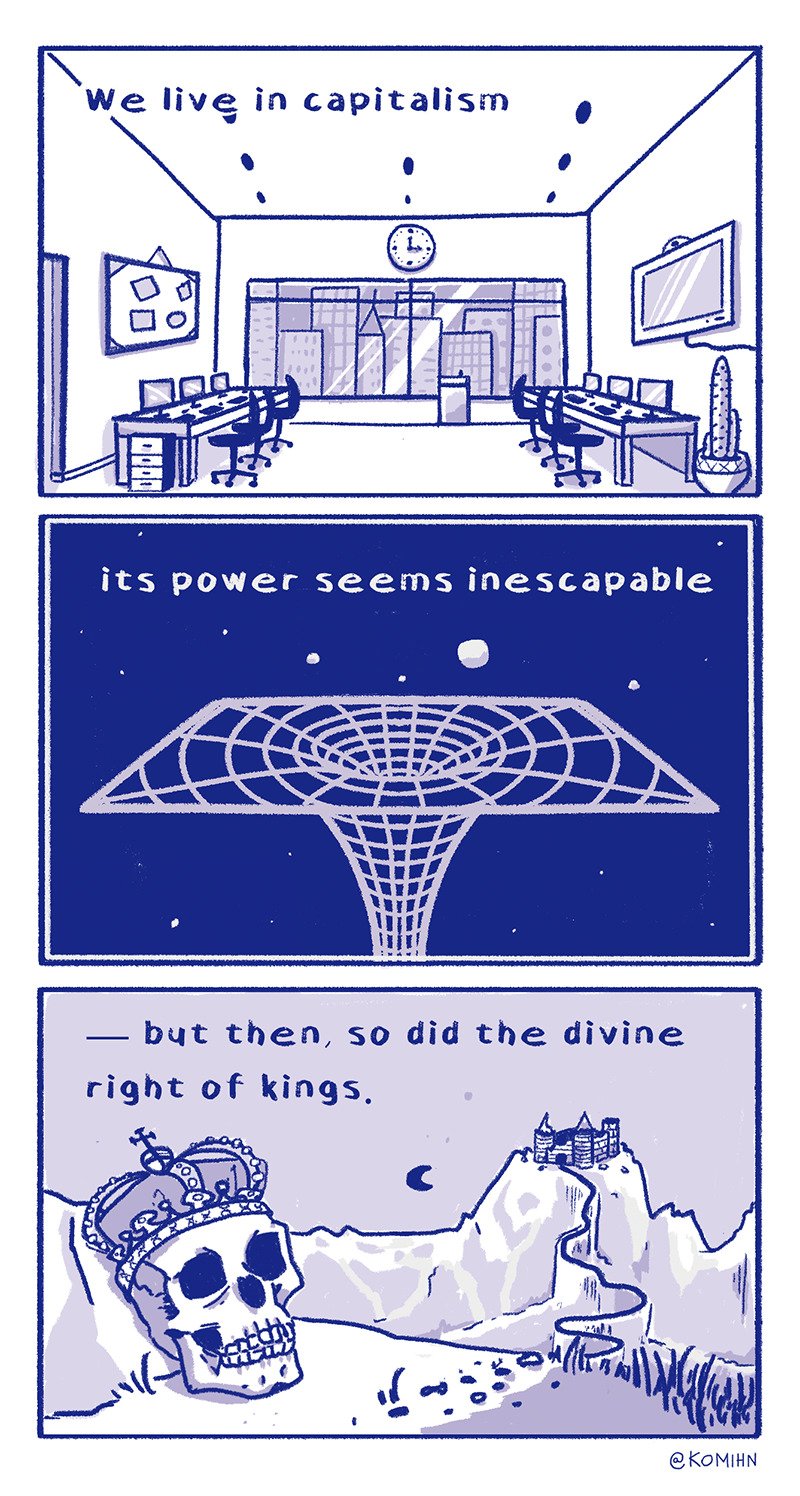I mean that's the rub right? Enlightenment liberalism clawed its way out of the corpse of feudalism. Marx assumed communism would do the same thing to the corpse of capitalism. So far he's just been wrong, at least in terms of the revolutionary/vanguardism model. That's why there's been an entire century of revision to that model to incorporate more democratic forward values. It's just you average internet leftist refuses to acknowledge this, because the fan service isn't as good.
Comic Strips
Comic Strips is a community for those who love comic stories.
The rules are simple:
- The post can be a single image, an image gallery, or a link to a specific comic hosted on another site (the author's website, for instance).
- The comic must be a complete story.
- If it is an external link, it must be to a specific story, not to the root of the site.
- You may post comics from others or your own.
- If you are posting a comic of your own, a maximum of one per week is allowed (I know, your comics are great, but this rule helps avoid spam).
- The comic can be in any language, but if it's not in English, OP must include an English translation in the post's 'body' field (note: you don't need to select a specific language when posting a comic).
- Politeness.
- Adult content is not allowed. This community aims to be fun for people of all ages.
Web of links
- !linuxmemes@lemmy.world: "I use Arch btw"
- !memes@lemmy.world: memes (you don't say!)
Part of the problem is that, while Marx writes well regarding the economic flaws of capitalism, he isn't as good at writing about the politics of change.
When induced by the body politic, we see that some of the economic surplus can be reallocated to the workers provided there is political pressure. It can come in the form of state backed rights, progressive taxation, and even direct welfare payments.
It probably isn't the perfect system Marx envisioned, but enlightened liberalism is able to make subtle shifts over time in a way that absolute monarchies can't.
Your comment portrays a lack of reading of Marxist literature. Lenin, as far back as 1916, talks about this surplus being reallocated to workers through political pressure. He describes the leftists who pursue this as "opportunist socialists", and explains why this is only possible in imperialist countries which exploit the resources and labor of other countries. It's why basically all socialist revolutions have taken place in less developed countries, whether it be democratically like Chile under Allende or Spain and its second republic and Iran under Mosaddegh, or a coup as happened in Libya, or a bloody revolution as in the USSR or Cuba.
What problems are there with the solutions he gives? Welfare Capitalism solves none of the problems with Capitalism Marx describes.
In what manner has Marx been wrong? Where in the history of Marxism has democracy not been core to the central ideas of it, especially when compared to Capitalism?
Read Marx, everyone.
The quote is correct, but as I recall the divine right didn't end because the people cried out for freedom. Royalty was replaced by governments of the nobility or military, neither of which are necessarily better for the people.
the bottom picture would look pretty cool in a shaun video
I don't really fit in that well here at times because I don't consider Capitalism as having anything to do with governance. Capitalism is a market system that uses competition to drive efficiency of creation of satisfaction of needs and luxuries both. If your democratic system of laws is being leveraged by highly efficient non-state entities, then you should really fix that shit, but fixing it doesn't require abolishing private property nor would that end corruption.
I saw panel 2 and only saw a sales funnel, am I broken? ;)
At least you saw a funnel.
This comic would slap harder if not for the Supreme Court under christofascist influence from the belief in the divine right of kings having today ruled that Presidents are immune from prosecution for official acts.
That whole divine king thing isn't nearly as dead as the last panel would like to portray it.
I do think that every cultures political system is structured the way that it is for a reason. Based off the history and experiences of the peoples of that country.
